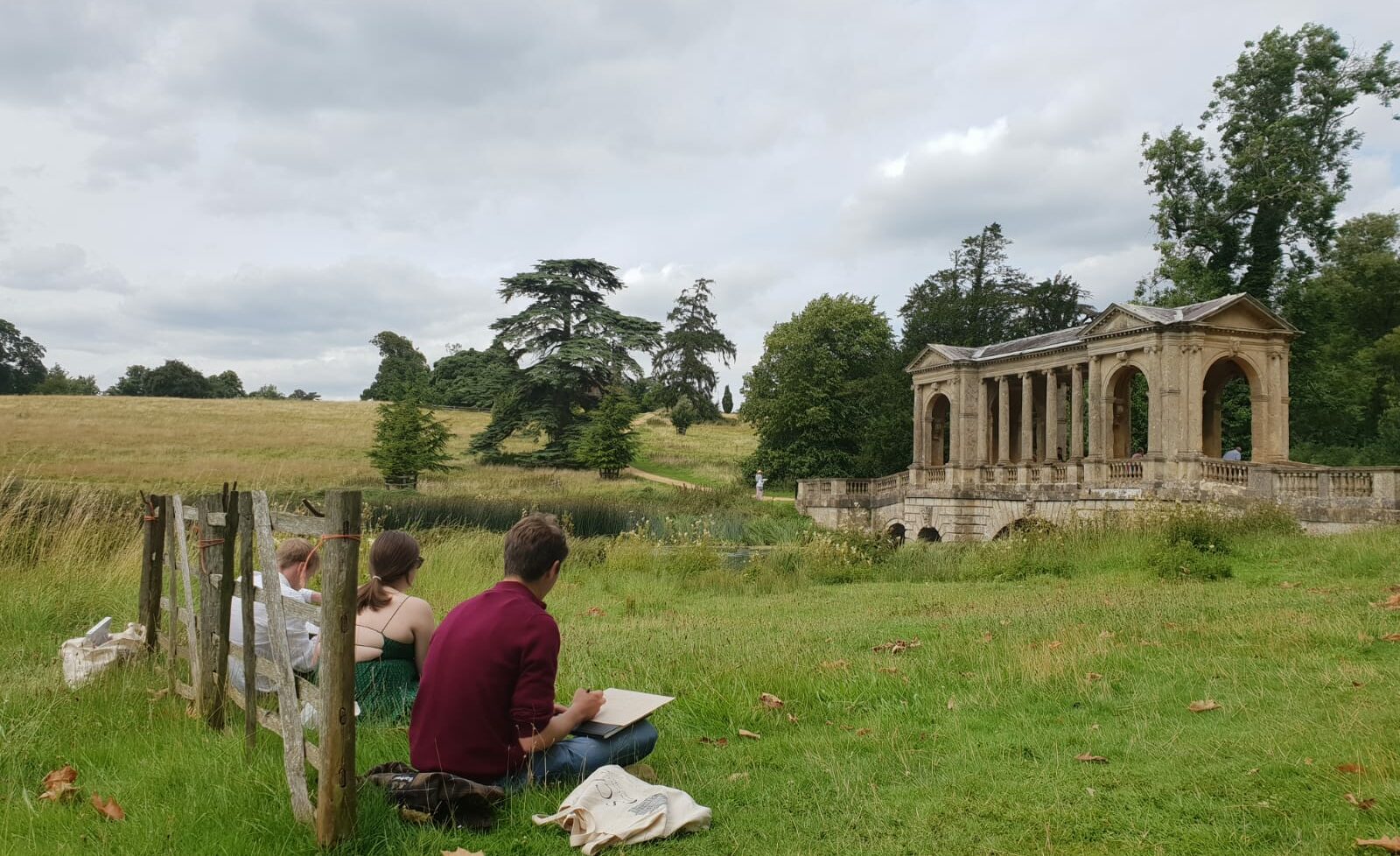
CSCA Summer School 2024
29 June - 3 August 2024
The Centre for the Study of Classical Architecture is pleased to offer its third annual Summer School, which provides an unparalleled formation in the history and practice of traditional architecture in one five-week course. This year’s course begins in Engelsberg, Sweden and moves, in the second week, to Cambridge, UK. The first week is spent at the idyllic Engelsberg Ironworks, a UNESCO World Heritage Site outside Stockholm, Sweden. Students reside in the historic buildings on site and enjoy quiet, verdant surroundings as they hone their drawing skills. During this first week, students are introduced to classical history and theory in on-site lectures and learn the techniques and methods of sketching, measured drawing, hand draughtsmanship, and watercolour rendering in an immersive studio environment. Artists and architects lead foundational workshops, helping students form their hands in traditional drawing practices. This week is designed to prepare students at any level of drawing experience for the main studio project. Visits to the historic cities of Uppsala and Stockholm serve as important introductions to the variety of Swedish classical ideas expressed by major university, ecclesiastic, and civic buildings.
The following four weeks are spent at the University of Cambridge and are based between Downing College and the Faculty of Architecture and History of Art. In Cambridge, prominent historians deliver seminars focused on British architecture of the seventeenth through twentieth centuries. These seminars are supplemented with exciting weekly study day trips to London and historic houses of major historic significance. Students are given special access to important buildings, including St Paul’s Cathedral, in addition to historical libraries, drawing collections, and museum collections.
In studio, leading practising architects teach traditional design and urbanism principles through hands-on studio instruction. Students embark on a studio project to prepare a theoretical design to fit new buildings into Cambridge’s historic urban fabric, encouraging students to think about sustainable growth. This part of the Summer Programme is overseen by talented and dedicated studio tutors and Britain’s foremost practitioners of classical and traditional architectural design to mentor students’ progress as informed practitioners.
During these five weeks in Engelsberg and Cambridge, all students benefit from Masterclass tutorials offered by prominent architects who mentor students as they advance through their studio design work and provide valuable feedback on design approaches. The Summer School culminates with an exhibition and collegiate evaluation of students’ studio projects.
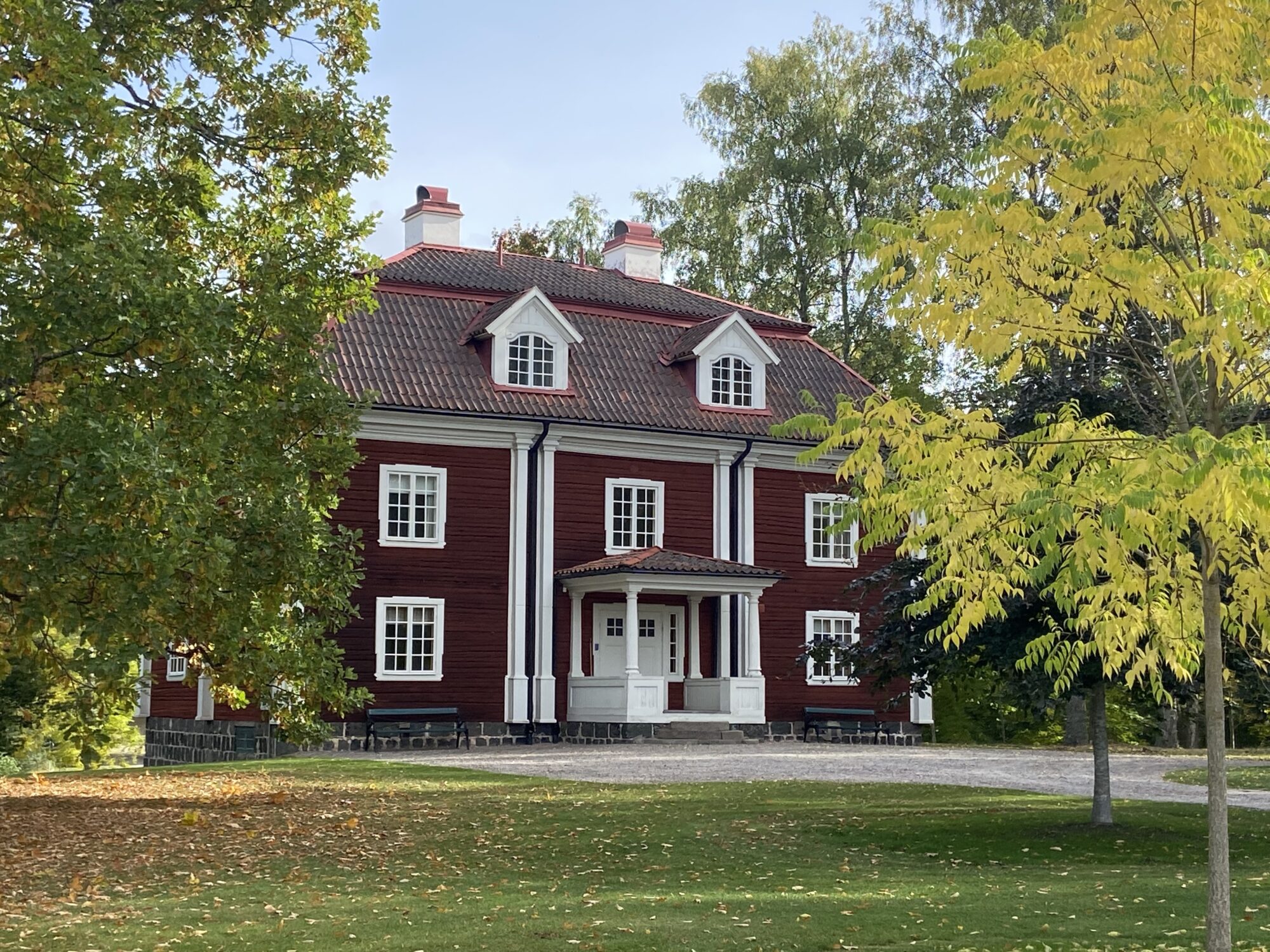

Programme Highlights
- Students stay at the UNESCO World Heritage site Engelsberg Iron Works set in the idyllic landscape of southern Sweden, outside of historic Stockholm
- Cambridge scholars and other leading architectural historians lecture on the history and theory of classical architecture from antiquity to the present day with a focus on British classicism of the seventeenth through nineteenth centuries
- Students reside at Downing College during the second part of the programme. Downing is the University of Cambridge’s ‘Enlightenment College’ with nineteenth-century buildings designed by William Wilkins and twentieth-century additions by Quinlan and Francis Terry
- Students gain privileged access to world-class museums and libraries including Sir John Soane’s Museum in London and Christopher Wren’s Trinity College Library in Cambridge
- Students learn to read and interpret historic parts of classical buildings and work with architectural drawings, manuscripts, rare books, and physical building materials
- Distinguished practising British architects lead Masterclasses in historic and contemporary drawing techniques and approaches to design and conservation
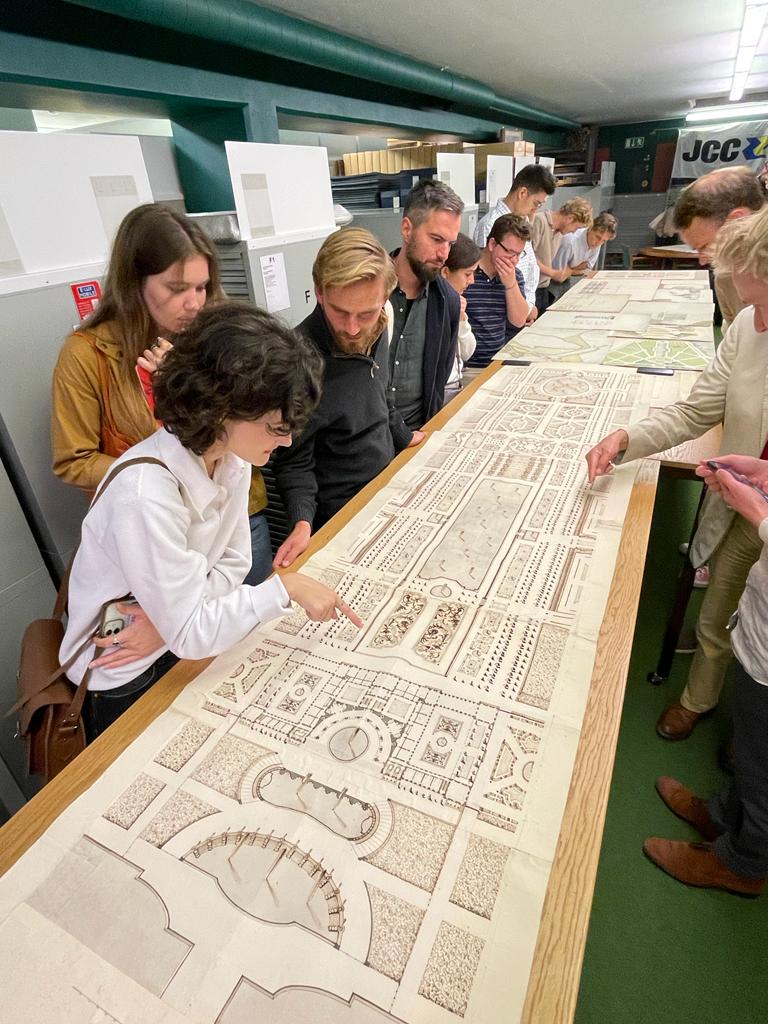
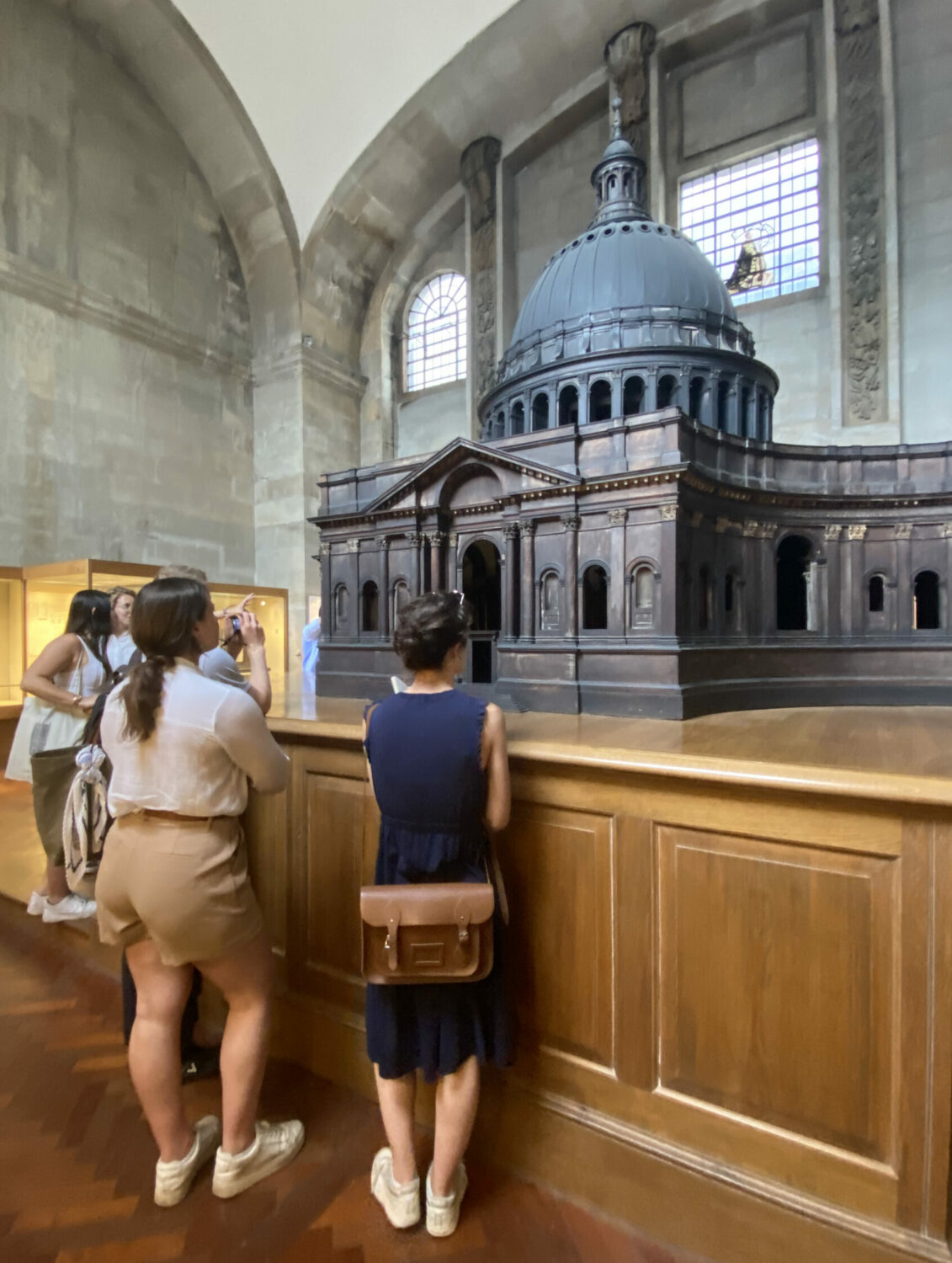
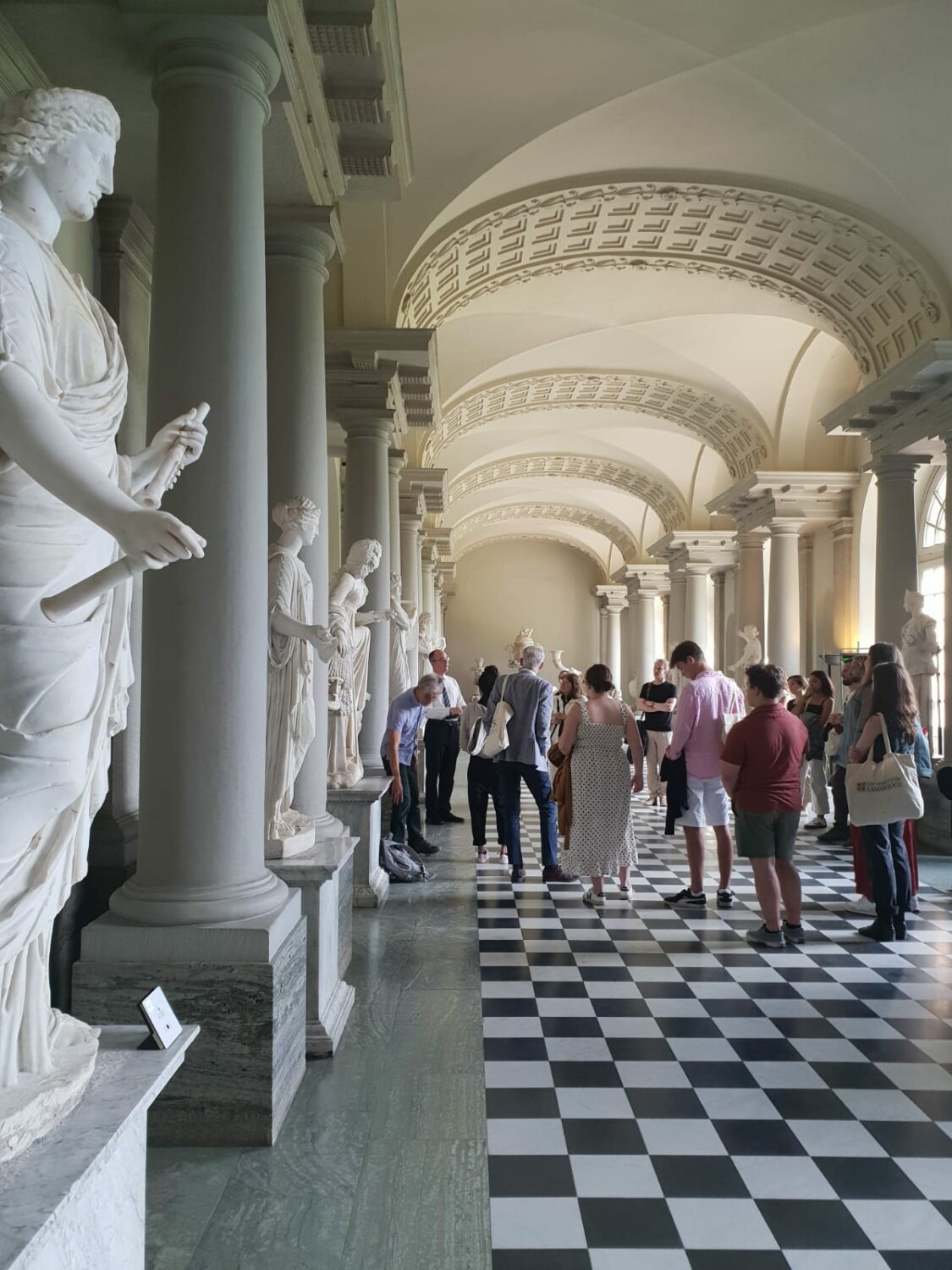
Programme Details
Programme Dates: 29 June – 3 August 2024
Programme Cost: £5, 875*
Accommodation: Engelsberg Iron Works, Sweden and Downing College, University of Cambridge, UK
Student Places: Up to 15
*Financial Awards: Entry to the programme will be competitive, and generous scholarships (excluding transportation to Sweden and from Cambridge) will be awarded to successful applicants, thanks to the generosity of the Axel and Margaret Ax:son Johnson Foundation for Public Benefit. (There is no separate application required to apply for funding.)
NB: Students are expected to bring some of their own studio materials such as watercolours and drafting tools, etc. Further details will be provided for successful applicants. Laptops are not used during the programme.
Programme Cost Inclusions:
- Single occupancy accommodation at Engelsberg Iron Works and a central Stockholm Hotel when in Sweden and single student accommodation at Downing College when in Cambridge
- Breakfast (daily); several lunches; wine receptions; 25 dinners (Dinners provided daily in Sweden and Monday – Thursday in hall at Downing in Cambridge)
- Daily lectures and studio sessions
- Entry into all sites included on the programme
- Transportation by private coach on study day trips
- Most communal drawing materials (including drawing boards) for the studio portion of the course
- A one-way economy class flight between Engelsberg (Arlanda Int’l Airport ARN) and London, UK
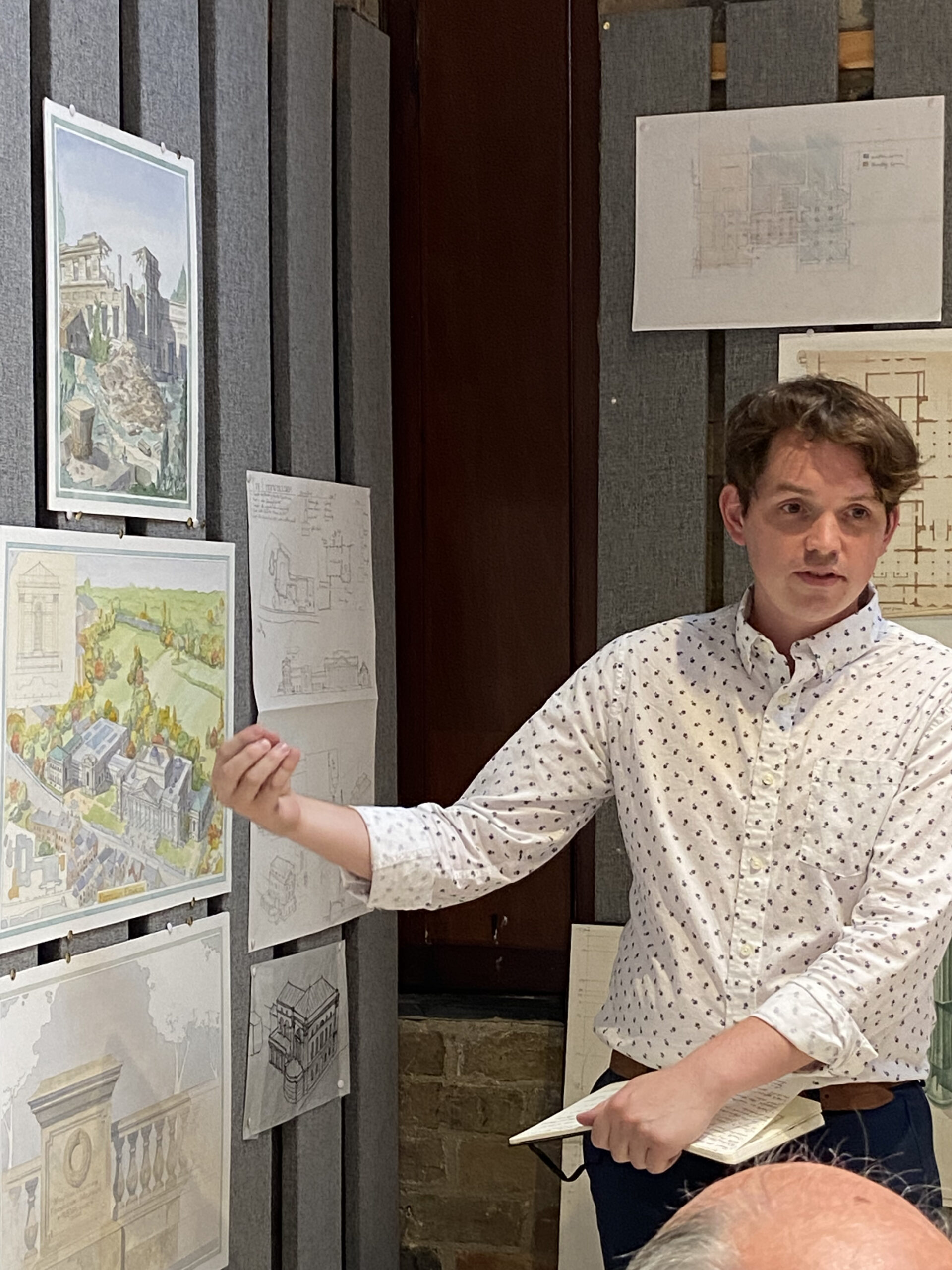
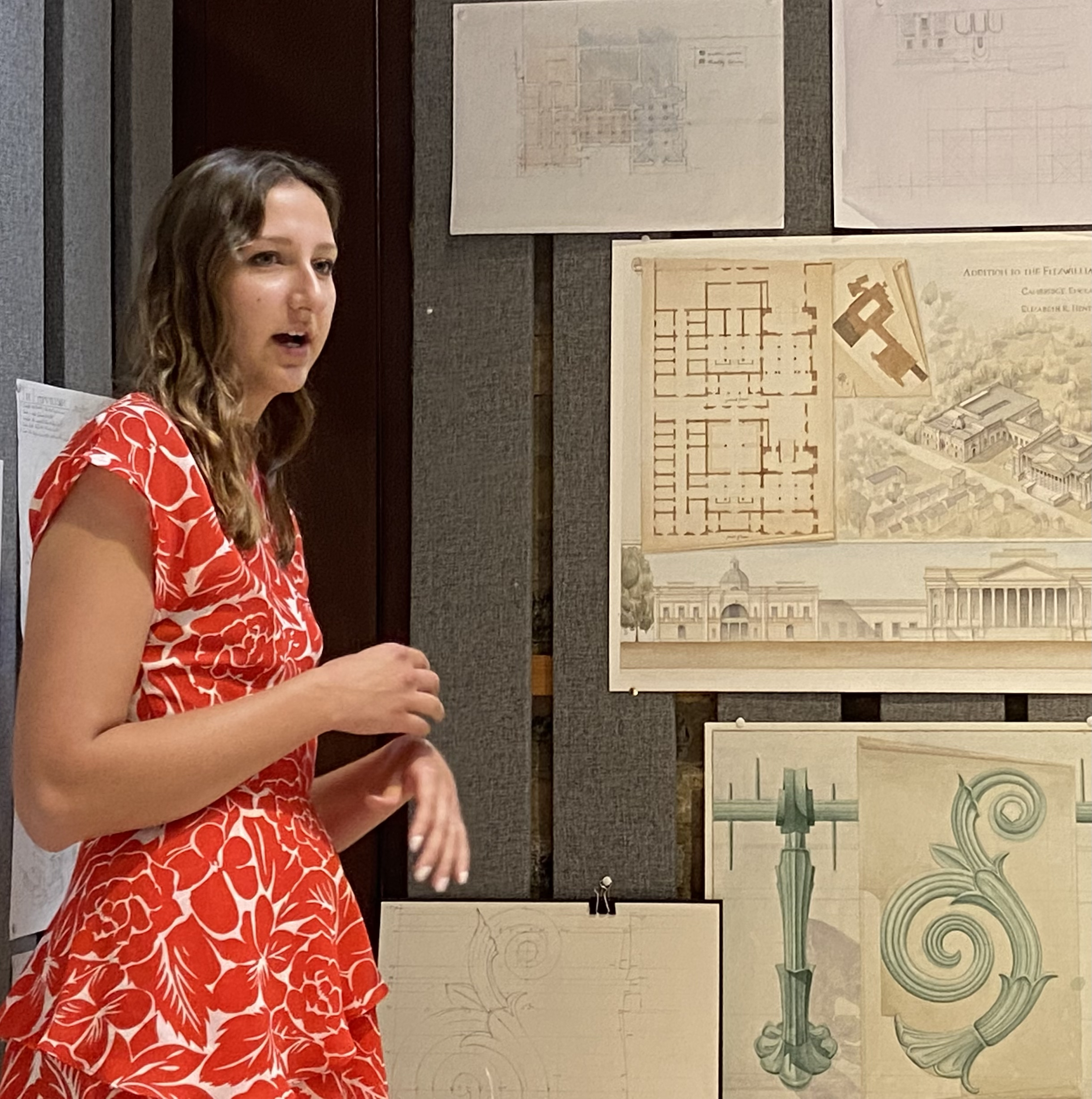
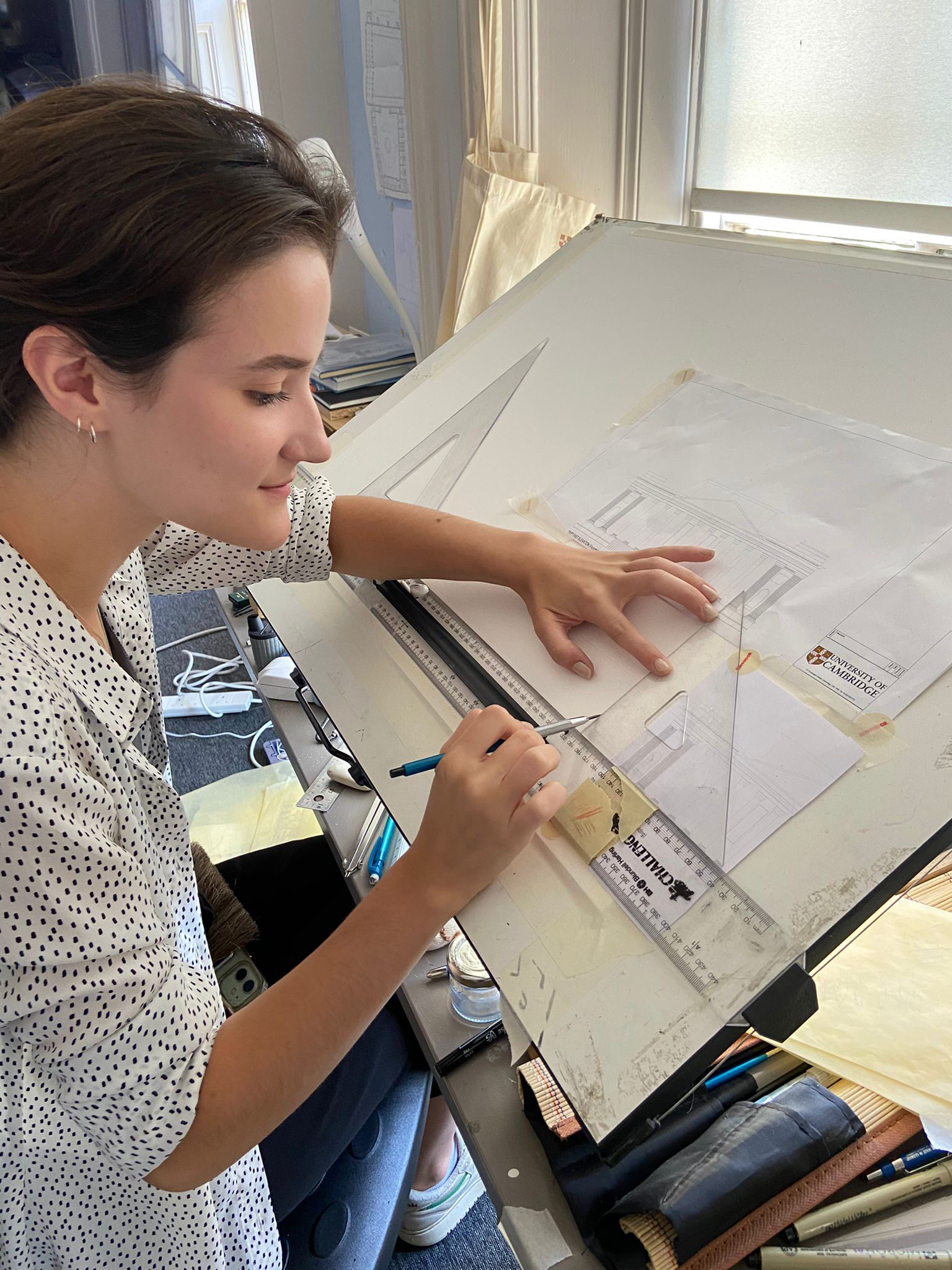

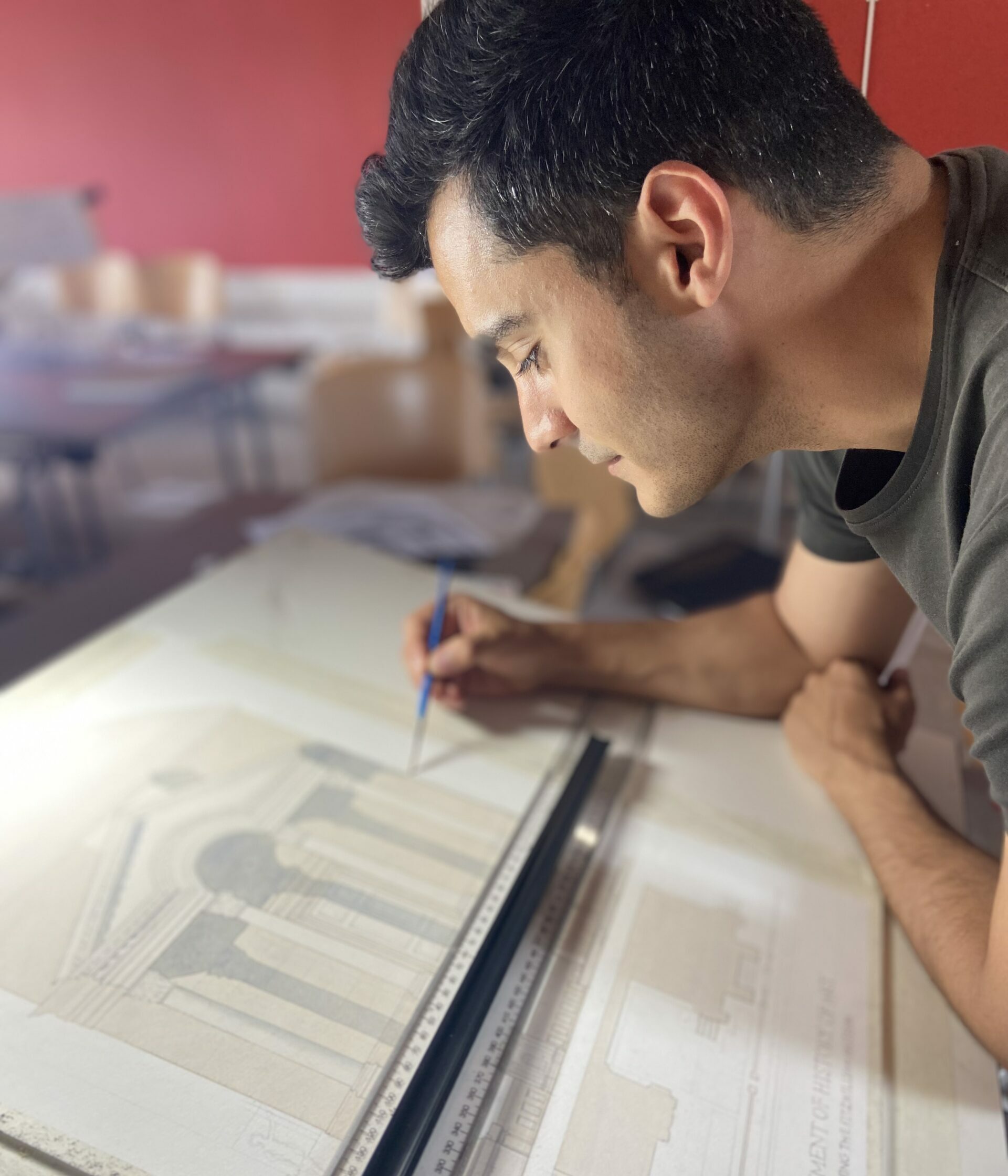
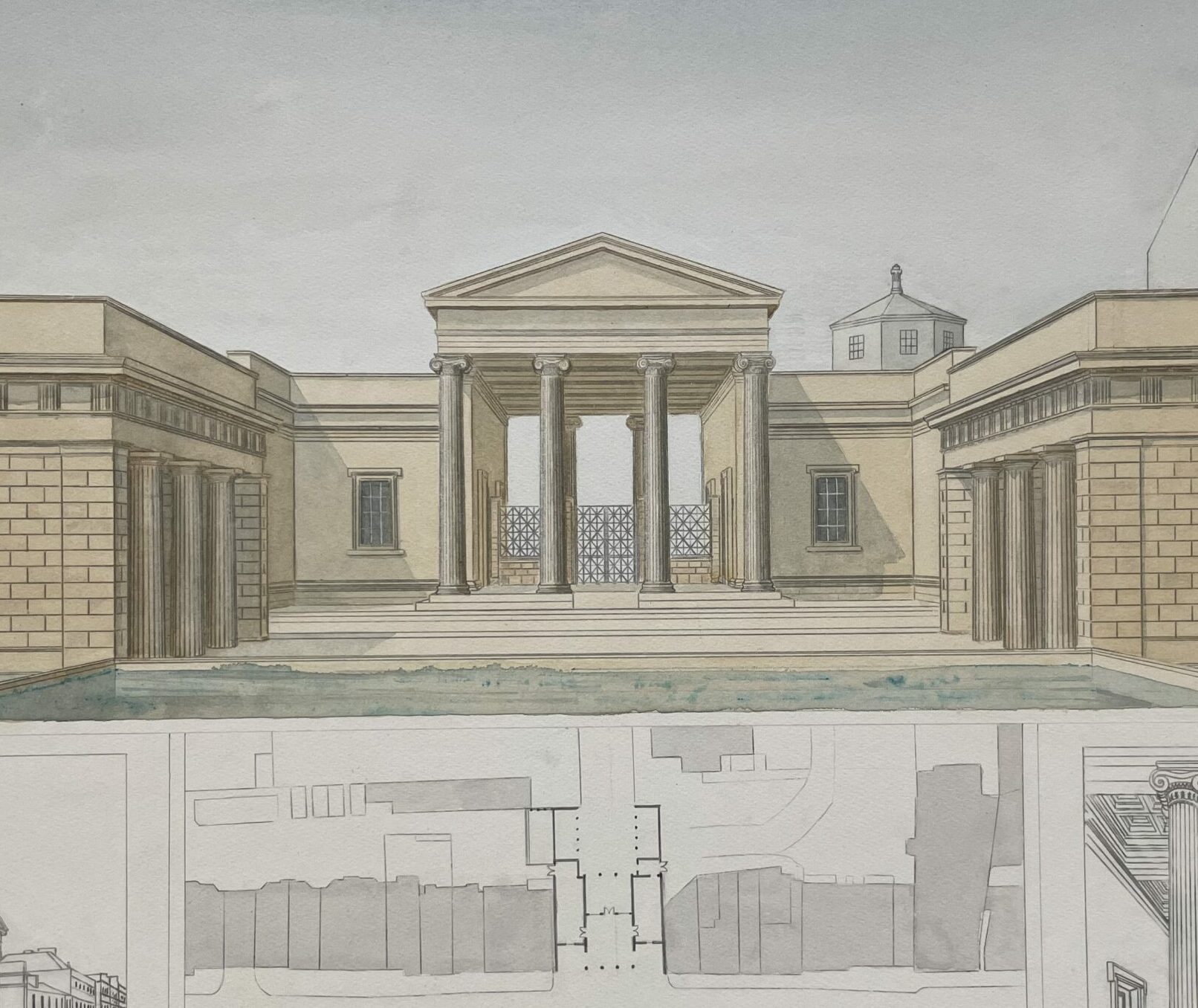
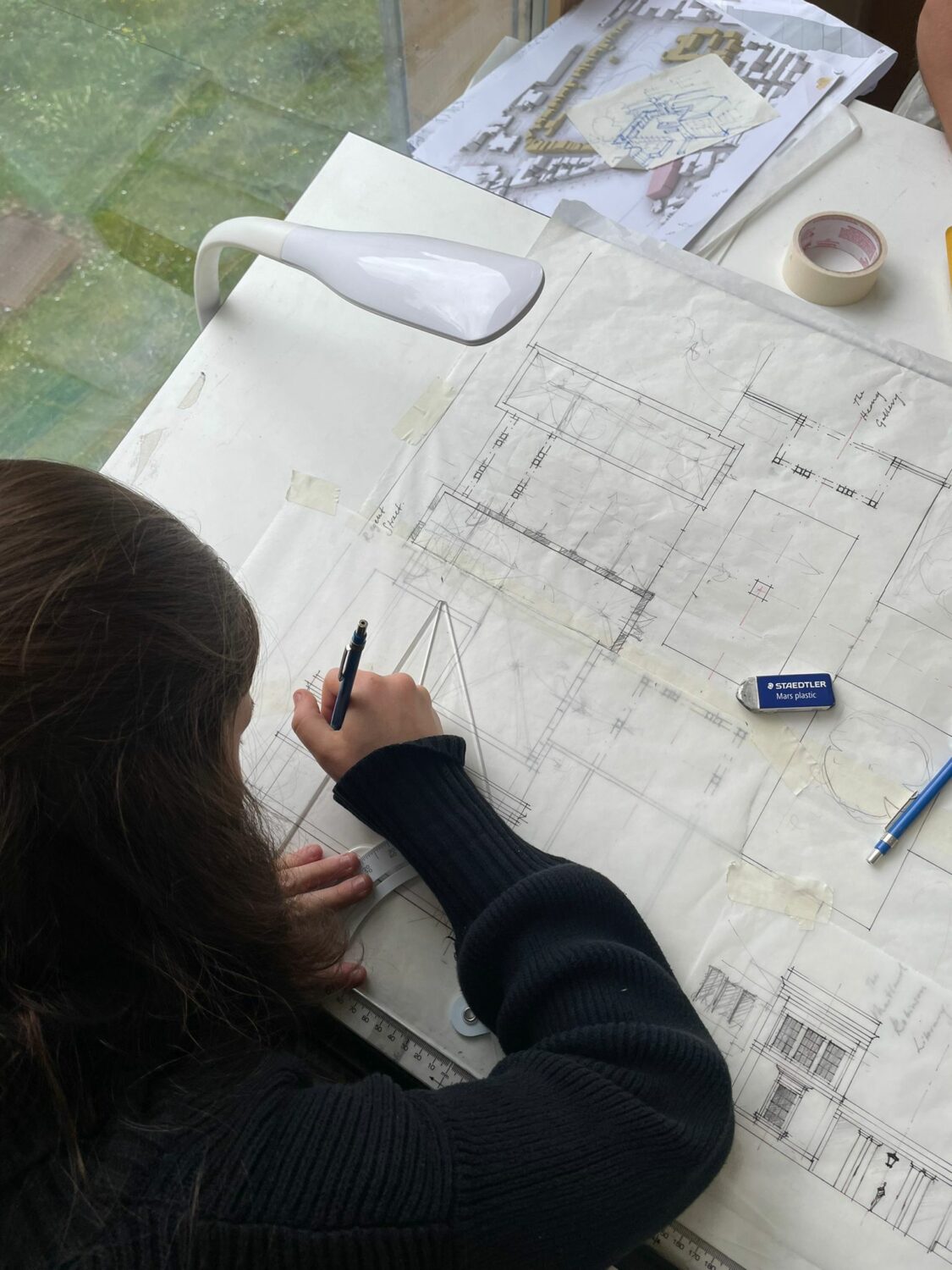
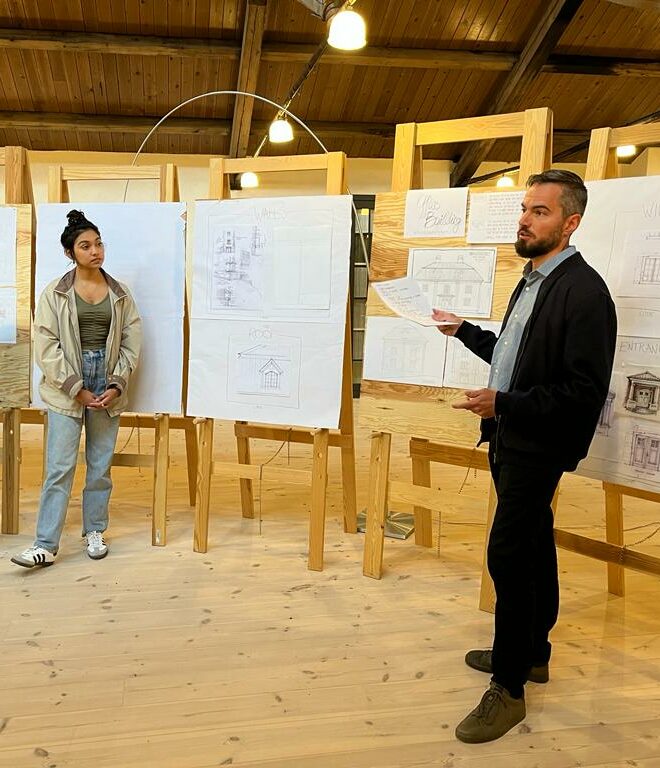
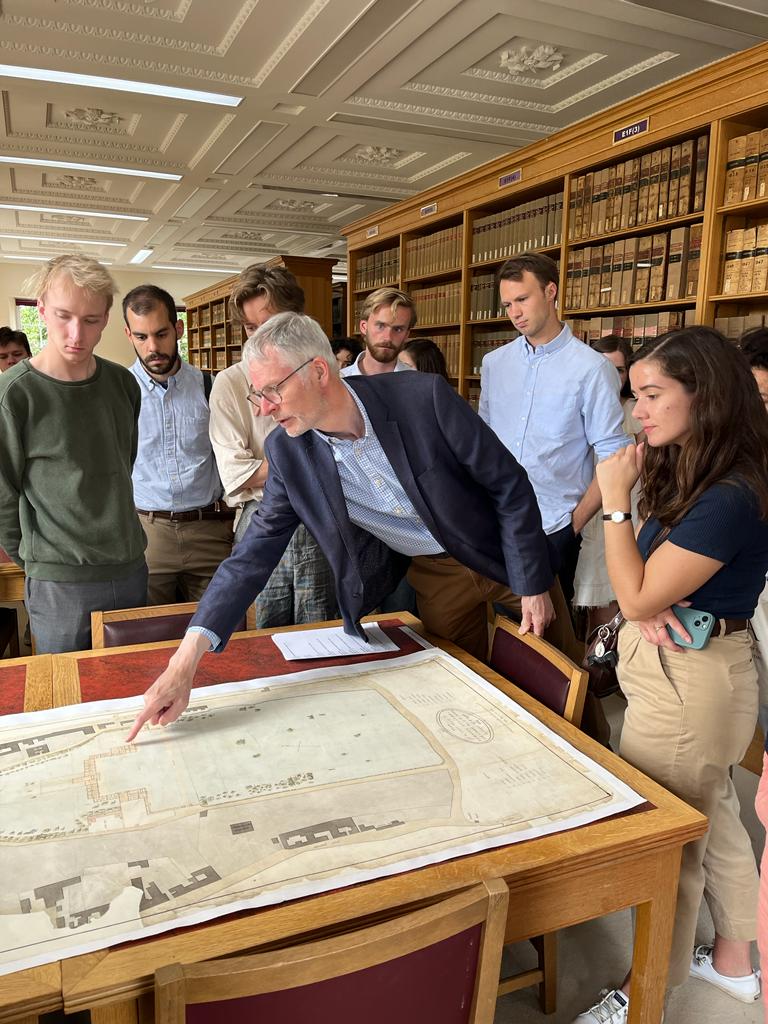
Application
We welcome applications from university-level students and early career professionals (graduating within the past 5 years) of any nationality or background. While we expect most applications to be from students of architecture and architectural history, other applicants able to show serious engagement with classical architecture will be considered. Be sure to clearly communicate how this programme will help your professional trajectory in your personal statement. Qualified architects in the early stages of practice are welcome to apply but will be expected to make a convincing case for their professional need to join this programme. In these instances, an interview with members of the selection panel may be required.
We understand that many students are working professionals, however, it is expected that work outside of the Summer School programme should not be undertaken during the five weeks.
Deadline:
The priority application deadline to be considered for funding is midnight (GMT) on 31 January.
Applications will be reviewed on a rolling basis until midnight (GMT) 30 March.
Required application documents:
- Personal Statement (between 500-750 words)
- Curriculum Vitae (max 2 pages)
- University Transcripts (unofficial) of all degrees awarded or in progress
- One (1) letter of recommendation (ideally from an academic referee)
- Portfolio (5 pages saved as a .pdf) for students enroled in or graduated from a studio architecture programme or a Writing Sample (max 5000 words) if applying or graduated from a history course of study
- One (1) digital photograph taken by the applicant and short (50-word) description of any building that either inspires or defines your architectural ethos
Apply:
Applications open 1 December 2023 for the 2024 programme.
Submit your application using this online form.
Letters of recommendation should be sent by the referee (not the applicant) as a .docx or .pdf file on letterhead to CSCA (csca@aha.cam.ac.uk) to the attention of the Director, Dr Frank Salmon, by the application deadline. Please note that it is the applicant’s responsibility to ensure their referee submits their letter of recommendation by the deadline.
Admissions decisions for applications submitted by the priority deadline will be communicated in early to mid March and, for those submitted during the rolling deadline, decisions will be communicated by early to mid April.


